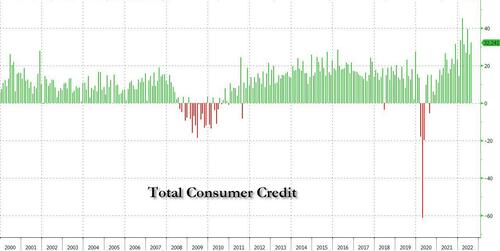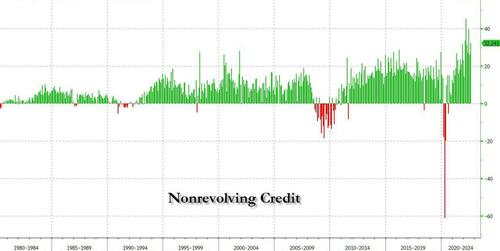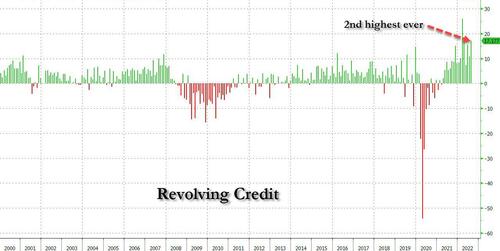
by ZeroHedge News Staff at ZeroHedge
While it is traditionally viewed as a B-grade economic indicator, the August consumer credit report from the Federal Reserve was another shocker especially after last month’s unexpected slow down in credit card debt, which we attributed to the surge in credit card rates and wondered if this implicit deleveraging would continue as the US economy slid into recession, or if US consumers are so desperate for liquidity they will max out their cards – without expecting to repay them – if it meant being able to pay for one more month of goods and services at record prices. We just got the answer when moments ago the Fed published the latest consumer credit data and it was a doozy.
Total consumer credit rose $32.2 billion, well above last month’s $26 billion and also above the $25 billion consensus estimate.
And while non-revolving credit (student and car loans) rose by a relatively pedestrian$15.1 billion…
… the stunner again was revolving, or credit card debt, which soared from last month’s sharp drop, rising by the second highest on record at $17.2 billion (from $10.4 billion last month) and only lower than the highest print on record, March’s downward revised $25.9 billion…
This sent total revolving consumer credit to new all time highs at just over $1.15 trillion, erasing all the post-covid credit card deleveraging just in time for those credit card APRs to hit record highs!:…
Continue Reading


